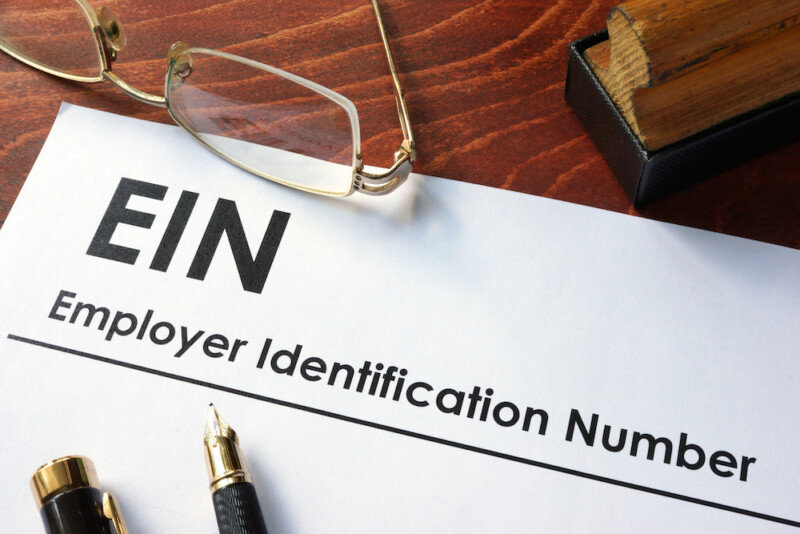If you already have an Employer Identification Number (EIN) for your business but have recently made some changes, you may be wondering if you need a new EIN. Because EINs are used for reporting certain taxes (such as payroll and excise taxes), it’s essential to follow the IRS’s rules for obtaining and using them.
Depending on the type of business entity and the circumstances, the IRS may require your business to get a new EIN.
Generally, the following situations call for an entity with an existing EIN to apply for a new one:
- Owners of an existing registered business entity start another registered business entity.
- A business entity adds a subsidiary company.
- A business entity switches to another business entity type (e.g., converts from an LLC to a C Corporation).
- A new entity is created after a merger of two entities.
However, the IRS’s rules vary for each type of entity. In this article, I’ll review the most common business structures and break down the situations when the IRS requires a new EIN. I’ll also cover the situations when getting a new EIN is unnecessary.
Need an EIN?
Let CorpNet handle it for you! Save time, enjoy peace of mind knowing your application form is completed correctly, and get your EIN quickly.
Common Scenarios When You Do and Do Not Need a New EIN
A Corporation will require a new EIN if:
- A new Corporation is formed with the Secretary of State.
- A Corporation is a subsidiary of a Corporation using the parent’s EIN.
- A Corporation becomes a subsidiary of a Corporation.
- A Corporation changes to a partnership or a Sole Proprietorship (or an LLC taxed as a Partnership or Sole Proprietorship).
- A new Corporation is created after a statutory merger.
A Corporation will not require a new EIN if:
- The surviving corporation uses the existing EIN after a corporate merger.
- A Corporation declares bankruptcy. (However, an EIN is needed if a liquidating trust is established for a Corporation that declares bankruptcy.)
- The corporate name changes.
- A new division of a Corporation is added.
- The Corporation moves its location or adds locations.
- A Corporation chooses to be taxed as an S corporation.
- A conversion occurs at the state level with no change to the business structure.
An LLC will require a new EIN if:
- A new multi-member LLC (i.e., an LLC with more than one owner) is formed under state law.
- A new single-member LLC (i.e., an LLC with one owner is formed under state law and elects to be taxed as an S Corporation or C Corporation).
- A new single-member LLC is formed that has an excise tax filing requirement or employment tax filing requirement for wages paid.
- An LLC changes its entity type to a Corporation.
- An existing LLC without an EIN elects to be taxed as a C Corporation or S Corporation.
An LLC will not require a new EIN if:
- An existing LLC that already has an EIN elects to be taxed as a C Corporation or S Corporation.
- The number of members in the LLC changes from more than one member to a single member (i.e., the LLC changes from a multi-member LLC to a single-member LLC).
- The number of members in the LLC changes from a single member to more than one member (i.e., changes from a single-member LLC to a multi-member LLC).
- The LLC has no employees or excise tax liability, and it reports income tax as a branch or division of a corporation or other entity.
- The LLC declares bankruptcy.
A Partnership will require a new EIN if:
- The partners incorporate the business or form a multi-member LLC.
- One of the partners takes over the partnership and operates it as a Sole Proprietorship.
- The partners end the Partnership and begin a new one.
A Partnership will not require a new EIN if:
- The Partnership declares bankruptcy.
- The Partnership changes its name.
- The Partnership changes its location or adds other locations.
- A new Partnership is formed due to the termination of a partnership.
- Fifty percent or more of the Partnership’s ownership (measured by interests in capital and profits) changes hands within a twelve-month period.
A Sole Proprietorship will require a new EIN if:
- The Sole Proprietor is subject to a bankruptcy proceeding.
- The Sole Proprietor incorporates the business — or forms a single-member LLC and elects to be taxed as an S Corporation or C Corporation.
- The business owner takes in partners and operates as a Partnership.
- The business owner purchases or inherits an existing business and will operate as a Sole Proprietorship.
- The Sole Proprietorship has hired or will hire employees who will be paid wages.
A Sole Proprietorship will not require a new EIN if:
- The Sole Proprietor changes the name of the business.
- The business changes its location or adds other locations.
- The Sole Proprietor operates multiple businesses.
How to Apply for an EIN
The IRS allows EINs to be requested online, by fax, or by mail using Form SS-4. The online application (available Monday through Friday from 7 a.m. to 10 p.m. EST) is the fastest method for receiving an Employer Identification Number; it assigns the EIN immediately during the online session. When ordering by fax, expect your EIN within approximately four business days. If you order by mail, the turnaround time is about four weeks.
Business owners who don’t feel confident in preparing and filing the form on their own can designate a third party (like CorpNet) to apply and receive an EIN on their business’s behalf. When doing so, the Third Party Designee section on the form must be completed and one of the business entity’s owners must sign the form.
How to Cancel an EIN
Businesses will no longer use their existing EIN after requesting a new one in some of the situations above. Typically, that will mean the tax account associated with that EIN must be closed. Business owners should discuss this with their accountant or tax advisor. After a business closes its EIN account, the EIN is never reissued to another business entity. The business entity that was assigned the EIN remains its owner and may use it again, if needed, in the future.
To close a business account associated with an EIN, the IRS needs a letter stating the following:
- Legal name of the business entity
- EIN
- Business address
- Reason for closing the account
Also, enclose a copy of the EIN Assignment Notice issued to you when you received your EIN — if you have that documentation.
Sources:
- https://www.irs.gov/businesses/small-businesses-self-employed/do-you-need-a-new-ein
- https://www.irs.gov/businesses/small-businesses-self-employed/canceling-an-ein-closing-your-account
- https://www.irs.gov/taxtopics/tc755#:~:text=An%20employer%20identification%20number%20(EIN,file%20various%20business%20tax%20returns
- https://www.irs.gov/pub/irs-pdf/p1635.pdf





